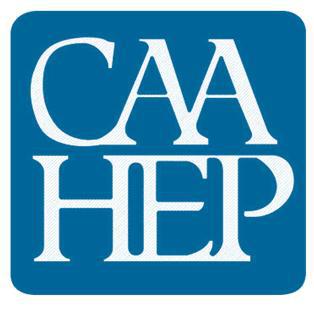Cardiovascular Sonography
The Cardiovascular Sonography program’s goal is to prepare competent entry-level sonographers in the cognitive (knowledge), psychomotor (skills), and affective (behavior) learning domains for Adult cardiac sonography. Knowledge and skills are obtained through in-depth instruction in the classroom, as well as hands-on experience in the lab and clinical settings.
The program is nationally accredited by the Commission on Accreditation of Allied Health Education Programs (CAAHEP). Graduates of a CAAHEP accredited program are eligible to seek certification through the American Registry for Diagnostic Medical Sonography.
Selective Admission Process
The TEAS test is a minimum requirement to apply for this program. Potential applicants are encouraged to complete this form if they are not sure whether they are meeting eligibility requirements or have questions about the test. Applicants should also be sure to visit the FAQ page for general questions about the test.
*Minimum requirements are subject to change each academic year. Please refer to the information packet.
Quick information
(AAS and Diploma)
| Thu | March 28, 2024 | 12 – 1 p.m. | Access the Info Session |
Accreditation
The program is nationally accredited by the Commission on Accreditation of Allied Health Education Programs (CAAHEP) upon the recommendation of the Joint Review Committee on Education in Diagnostic Medical Sonography (JRC-DMS).
9355 – 113th St. N, #7709
Seminole, FL 33775
Phone: 727-210-2350
Fax: 727-210-2354
Related Information
The focus of this program is echocardiography (sonography of the heart) and includes some vascular sonography instruction. The curriculum provides the individual with the knowledge and skills necessary to acquire, process, and evaluate the human heart using high-frequency sound waves to produce images of the heart. Course work includes effective communication and patient care skills combined with knowledge of physics, human anatomy, physiology, and pathology all of which are essential to obtaining high-quality sonographic images.
Students will learn through classroom, lab, and clinical instruction.
Travel is required for clinical education sites.
Graduates may find employment in hospitals, physician’s offices, diagnostic outpatient centers, mobile services, and educational institutions.
Program Outcomes
Attrition, Job Placement, and Credential Success Rate
Cardiovascular Sonography Program EffectivenessCurriculum Information
Cardiovascular Sonography Diploma (D45160)Cardiovascular Sonography, A.A.S. (A45160)


